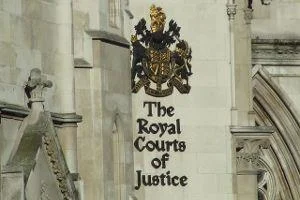The UK's largest and most visited divorce site.
Modern, convenient and affordable services.
We've helped over 1 million people since 2007.
- Library Home

- FAQs
FAQs
Following the breakdown of a marriage, spouses are often left bewildered as to their options and rights. Recent legislative changes however, have greatly increased the number of options open to spouses following marital breakdown. A family law solicitor will go through each option in detail to ascertain which route is most appropriate for them.
Overview
- either spouse can apply for a Decree of Divorce - the person applying is the Applicant
- the other spouse is the Respondent
- Ireland has adopted a “no fault” system in applying for divorce
- the venue can be in any county where any party ordinarily resides or carries on any profession, business or occupation
- either spouse must be resident in the State for one year prior to the application
the Court shall be the Circuit Court unless, the market value of any land in which proceedings relate exceed €3m and either party or any person having an interest applies to transfer it to the High Court.
(Click on the orange sub-headings for sample forms)
The estate of a person dying intestate is charged with a fixed sum (the statutory legacy) in favour of the person’s surviving spouse or civil partner. This Order increases the statutory legacy from £125,000 to £250,000 where the intestate is survived by issue, and from £200,000 to £450,000 where there is no surviving issue but the intestate is survived by certain close relatives.
By virtue of section 1(3) of the Family Provision Act 1966, this Order supersedes the Family Provision (Intestate Succession) Order 1993 (S.I. 1993/2906) in relation to the estate of a person dying on or after 1st February 2009
Made: 28th January 2009
Coming into force: 1st February 2009
Married parents share joint parental responsibility and come before the Court as equals. The children's welfare is the court's paramount consideration. If there is a dispute as to with which parent the children should live, the court must decide one after either parent issues a formal application to the court for a residence order. In considering which parent is best able to meet the child's best interests, the Court will apply the "welfare checklist" (s1(3) Children Act 1989).
There are two kinds of joint custody, legal and physical. Joint legal custody gives the non-residential parent the right to participate in major decisions about the children's upbringing and to view various records. In the traditional sole custody arrangement, the non-custodial parent has a right to a limited amount of contact with the child, and the requirement to pay child support, but is in many ways legally equivalent to a stranger. For example, a non-custodial parent cannot access his or her own child's medical records without the custodial parent's permission. Joint legal custody does not affect the child's living arrangements. Often it is granted with the traditional residence arrangement, in which the child lives with one parent but is permitted to visit the other parent four days per month.
With joint physical custody (also called shared parenting), the child lives with both parents, often on an alternating week basis. Joint physical custody is usually defined as a schedule where the child has at least a 30/70 time share between parents, although 50/50 arrangements are common (Ricci, 1981). Joint physical custody is almost always accompanied by joint legal custody.
According to the Children Act 1989 PR is ‘all the rights, duties, powers, responsibilities and authority which by law a parent of a child has in relation to a child and his property’. PR only applies once a child has been born and does not apply while the child is In Utero. There is no legal limit to the number of adults who can have PR for a child. PR was the most significant new concept created by the CA1989 and replaced the concept of parental rights in Section 4 of the Family Law Act 1987.
You can find out on the Legal Services Commission website - see link in our Top Divorce Sites section. A solicitor has a duty to advise you as to whether you're entitled to Public Funding for your divorce and related matters, such as periodical payments, any issue relating to your children or division of property. While many solicitors do accept Publicly Funded work, many others don't but will nevertheless refer you to solicitors who do. If you qualify, the Legal Services Commission may pay your solicitor's fees in the form of a loan which may be taken out of the proceeds of the financial settlement that you reach with your spouse.
We can help you to get a fair financial settlement.
Negotiate a fair deal from £299

Helping you negotiate a fair financial settlement with your spouse (or their solicitor) without going to court.
Financial Mediation from £399

Financial mediation is a convenient and inexpensive way to agree on a fair financial settlement.
Consent Orders from £950

This legally binding agreement defines how assets (e.g. properties and pensions) are to be divided.
Court Support from £299

Support for people who have to go to court to get a fair divorce financial settlement without a solicitor.










